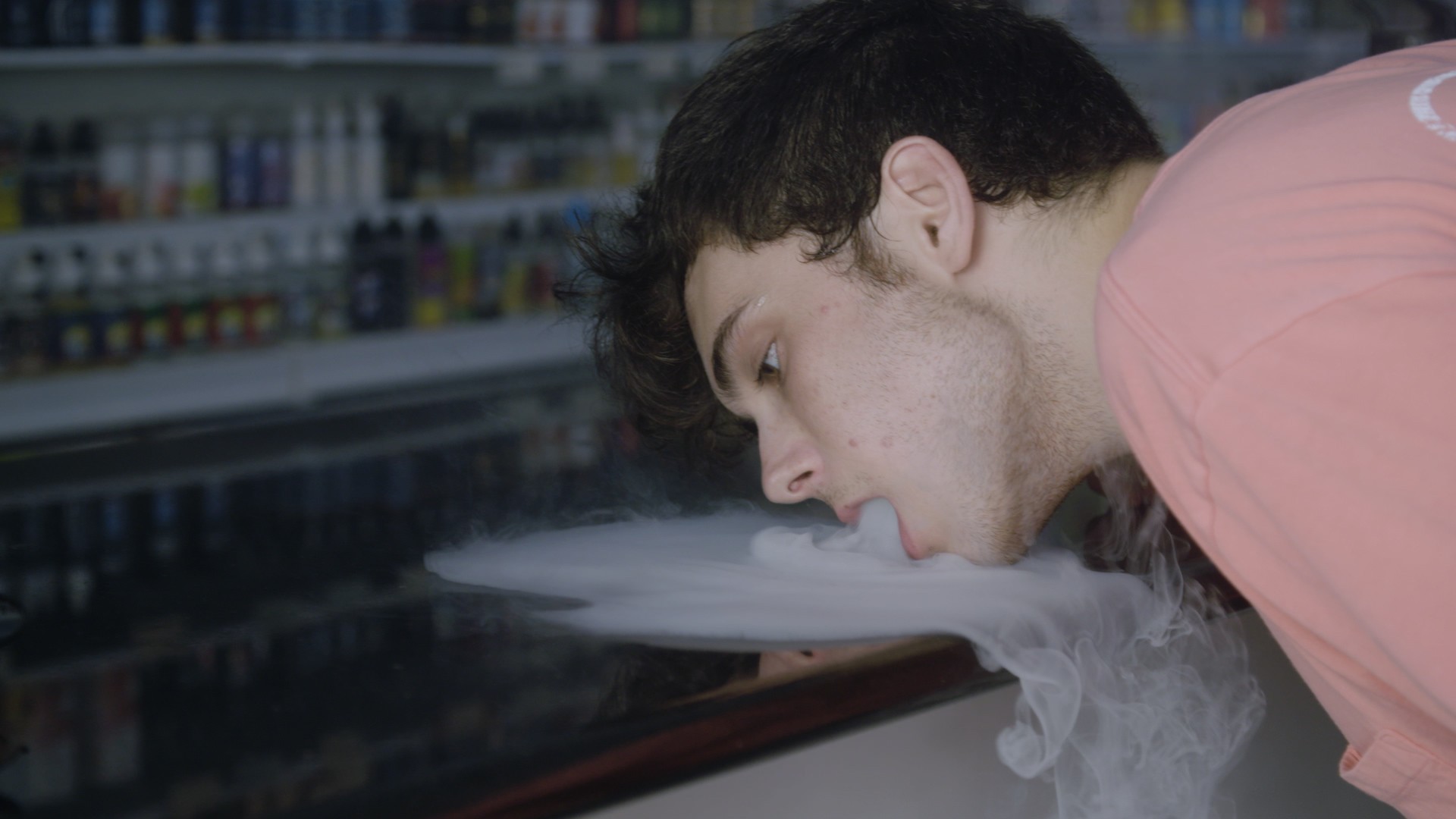The calls have been coming in virtually nonstop.On one end of the phone is a personal injury attorney. On the other, a parent who says their child is addicted to JUUL.

Jacob Plattenberger, a lawyer who specializes in food and flavor manufacturing, estimates that he already has hundreds of clients interested in pursuing lawsuits against JUUL Labs—the vape behemoth that controls an estimated two-thirds or more of the market in the United States. (Some cases involve other, smaller companies.) Plattenberger and his firm, TorHoerman Law, have mostly been filing e-cigarette lawsuits for clients who say they have contracted bronchiolitis obliterans (a.k.a. popcorn lung), an obstruction of the lungs' smallest airways that can be caused by chemical particles.But they're also entertaining the idea of pursuing other vape-proximal litigation: TorHoerman's website already features an extensive outline overviewing potential consequences of using JUUL, and vaping in general. The number of calls, Plattenberger said, has been steadily growing amid the ongoing panic over vape-linked deaths attributed to a seemingly new, mysterious ailment. (At the moment, he said, the firm probably fields in the range of 20 to 50 vape-related calls every day.) Plattenberger said he'd actually anticipated this moment for years. That is, doctors simply did not know what they were looking at when they came across vape-related lung illnesses in the past, he said, arguing the recent spate of cases was less of a seemingly overnight explosion than a belated recognition by parents and clinicians.One thing's for certain: The vape panic of 2019 is fresh, fertile, and potentially extremely lucrative ground for personal injury attorneys, who suggested it won't just spur the government to go on a regulatory binge but also could produce millions of dollars for their clients and firms.Ned McWilliams, an attorney and shareholder at the Florida-based Levin Papantonio, where he focuses heavily on pharmaceutical litigation, echoed Plattenberger's account. "I've been a lawyer for about 13 or 14 years now, and of all the projects I've ever worked on, I've never seen such an outpouring of people seeking help," he said. "I'm not exaggerating when I say that I talk to at least 10 families a day."Attention from the press has exacerbated whatever potential litigants might have done on their own, unprompted, lawyers said."I think lots of parents are seeing what's going on in the news, and they're going through their kids' backpacks, and they're looking at what they thought was a USB stick and realizing it's not a USB stick," McWilliams continued. "That's a story I hear quite a bit."Especially now that the FDA has formally stated that JUUL broke federal regulations by explicitly targeting young people—an allegation it denies—parents and their nicotine-dependent children can more easily blame the vaping company for getting them hooked. The media seems to report a brand-new one every day: A Kansas man has filed a class-action lawsuit revealing that he goes through nearly five pods a day. A guy in Connecticut has said that he didn't realize just how much nicotine was actually in a pod. A dad in New Jersey literally purchased his 14-year-old a JUUL and has since claimed he did not realize it contained nicotine at all.In other words, as in almost every health crisis that produces a raft of litigation, some suits will be more credible than others."Already, I've sued [JUUL] in New York," said Scott Schlesinger, a personal injury attorney based in Florida who frequently litigates against Big Tobacco. "I've sued them in Connecticut. I've sued them in Florida. I've sued them in California. I'm suing them all over the place—and I'm suing the vape shops, too, who have sold these things to underage kids. How many cases will be in state court? That has a set of rules. How many cases will be in federal court? That has a set of rules. How many cases will be for addiction? I can't get off this stuff. How many cases will be for economic harm? Like, I wouldn't have bought any of this stuff if you didn't addict me. You have the personal injury claim. Hey, I need a ventilator because of this stuff."So the claims are as varied as they are numerous. Yet all of the lawyers VICE spoke to emphasized their reluctance at solely blaming JUUL for the current health epidemic, and the company has long shunned the idea that it has gone after kids."We have never marketed to youth and do not want any non-nicotine users to try our products," Ted Kwong, a spokesperson for JUUL Labs, said in a statement. "These suits largely copy and paste unfounded allegations previously raised in other lawsuits, which we have been actively contesting for over a year. These cases are without merit, and we will defend our mission throughout this process."We'll soon learn more about that. JUUL has asked a federal judicial panel to consolidate some of these impending lawsuits into one. It's meant to be more efficient for all the parties involved, and dozens of lawyers are convening next week in Los Angeles, where that panel will hear initial arguments and mull next steps amid an avalanche of cases."Right now, I think the complaint count—the actual number of cases that have actually been filed—is relatively low because what everybody is waiting on is to see what's going to happen with the panel," Plattenberger said. "Once that gets set up, I imagine there are going to be filings en masse. There's no real reason to file anything now, if the case is going to get moved in 30 days.""I only have one or two complaints on file, and I probably have a 100-plus clients," McWilliams added. "And I expect that number to skyrocket [once the panel chooses]."In the meantime, as these cases work their way through court, the prospect of discovery means more and more information about who exactly made these devices, why, and how they were marketed is almost sure to come out."For the past 20 years, an important part of tobacco regulation has included the creation of a public archive of these internal company records," said Sarah Milov, an assistant professor of history at the University of Virginia and the author of The Cigarette: A Political History. "This is how we know so much about the lengths that the tobacco industry went to conceal what it knew about the dangers of smoking. If vaping litigation leads to settlements that require the disclosure of corporate documents, it can help scientific researchers, regulators, scholars, and journalists better understand this public-health issue.""Public scrutiny," Milov further suggested, "may ultimately lead people to conclude, as they did with Big Tobacco, that the industry puts profits over people."Sign up for our newsletter to get the best of VICE delivered to your inbox daily.Follow Alex Norcia on Twitter.

Jacob Plattenberger, a lawyer who specializes in food and flavor manufacturing, estimates that he already has hundreds of clients interested in pursuing lawsuits against JUUL Labs—the vape behemoth that controls an estimated two-thirds or more of the market in the United States. (Some cases involve other, smaller companies.) Plattenberger and his firm, TorHoerman Law, have mostly been filing e-cigarette lawsuits for clients who say they have contracted bronchiolitis obliterans (a.k.a. popcorn lung), an obstruction of the lungs' smallest airways that can be caused by chemical particles.
Advertisement
Advertisement
Advertisement
Advertisement
